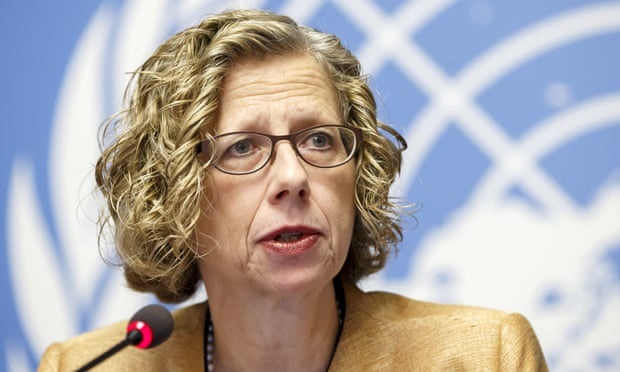The UN Environment Programme (UNEP) says deadly wildfires, noise pollution and other looming environmental threats could cause widespread ecological damage.

UNEP, in a report published on Thursday, February 17, 2022, therefore called for the need to urgently addressed the threat.
“The Frontiers Report identifies and offers solutions to three environmental issues that merit attention and action from governments and the public at large,” UNEP Executive Director Inger Andersen said.
Noise, Blazes and Mismatches: Emerging Issues of Environmental Concern, the sixth report, draws attention to emerging environmental concerns with the potential to wreak regional or global havoc, if not addressed early.
The latest report, released days before the UN Environment Assembly (UNEA) resumes, spotlights growing public health threats that are disrupting natural life cycles and having profound ecological consequences worldwide.
“Urban noise pollution, wildfires and phenological shifts – the three topics of this Frontiers Report – are issues that highlight the urgent need to address the triple planetary crisis of climate change, pollution and biodiversity loss,” Andersen said.
Unwanted, prolonged and high-level sounds from road traffic, railways, or leisure activities, impair human health and well-being, according to the report.
Chronic annoyance and sleep disturbance caused by traffic can result in severe heart diseases and metabolic disorders with the very young, and mostly affect the elderly and marginalised communities near busy roads.
Noise pollution also threatens animals by altering the communication and behaviour of various species, including birds, insects, and amphibians.
The report encourages urban planners to prioritise noise reduction by investing in urban infrastructure that creates positive soundscapes such as tree belts, green walls, and more green spaces in cities – also offering diverse health benefits.
London’s Ultra-Low Emission Zone, Berlin’s new cycle lanes on wide roads, and Egypt’s national plan to combat noise, are positive examples that can be harnessed as the world builds back better from COVID.
However, climate change disrupts these natural rhythms as plants and animals are being pushed out of synch with their natural rhythms, leading to mismatches, such as when plants shift life cycle stages faster than herbivores, the report says.
Meanwhile, local climatic cues that trigger migration for birds may no longer accurately predict conditions at their destination and resting sites along the route.
And in crops, phenological shifts in seasonal variations challenge food production.
The report flags the crucial importance of conservation goals, such as maintaining suitable habitats and ecological connectivity, strengthening the integrity of biological diversity and coordinating international efforts along migratory routes.
Above all, it underscores the importance of reducing CO2 emissions to limit the rate of warming.
The report outlined that between 2002 and 2016, an average of 423 million hectares of the Earth’s land surface – about the size of the European Union – burned, projecting that dangerous wildfires will likely become more frequent, intense and longer lasting, including in areas previously unaffected by fires.
Climate change can prompt extreme wildfires, generating lightning that can ignite other fires, far beyond the fire front and creating a so-called hazardous feedback loop.
Long-term effects on human health extend beyond those fighting wildfires, or the evacuated, or those who have lost homes, and exacerbate impacts among those with pre-existing illness, women, children, the elderly and the poor.
At the same time, black carbon and other pollutants generated from wildfires can contaminate water sources, speed up glacier melt, trigger landslides and turn rainforests into carbon sinks.
To address this, the report calls for greater investment in reducing wildfire risks; developing prevention and response management approaches; and refinancing remote sensing capabilities, such as satellites and radar.
By Cecilia Ologunagba
